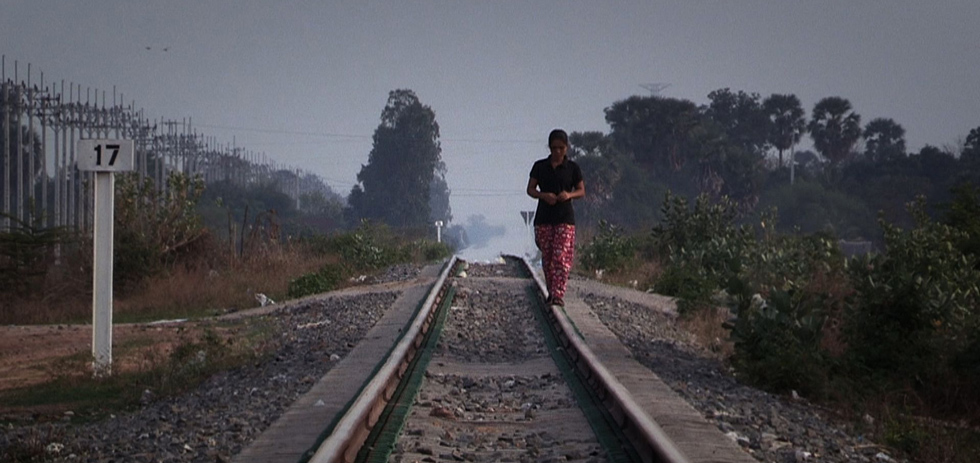
The title of The Storm Makers is a local name for the greedy traffickers that take vulnerable Cambodian villagers over national borders to prospective jobs and into peril. It would be expected if director Guillsume Suon and crew conducted a straight report on the heinous systems that stoke this vicious process, and it seems in the opening minutes that they will, given their use of news coverage audio and footage of migrants wandering South-East Asian streets, faces fraught with uncertainty. This gives way to something deeper, though, as they take us into rural Cambodian homes where these victims have been hawked upon. These spaces have been so gutted by this figurative storm that literal ones find little to fall on. Those people that we do see among the ossified encampments chart the vicious cycles of labour abuse through gut-wrenching personal stories. By waylaying these deeply melancholic segments with testimonials from those commiting the abuse, a gripping indictment of exploitation grows from this scorched earth.
It’s trite to say that a documentary goes the distance by being more personal and human, but Guillame Suon and company assuredly find this at Ground Zero of the disaster, encountering people marked either by trauma, guilt or both. The most devastating insights come from Aya, who we first meet by way of her shockingly embittered mother, lamenting the illegitimate child her daughter has brought home from her voyage to find work in Malaysia. Hearing Aya recount her troubled life is a deeply edifying experience, not just for the damning account of toxic masculinity and a country’s national prison complex, but how she coolly does so in a naturally lit environment, with a permanent glance to one side as if to rebuke the typical power held by an interviewer. Her extraordinary resilience elevates her and the film well above any dry fact-finding mission.
As for the storm-makers, we are only introduced to two in person. One, Pou Houy, is an embarrassingly flushed agency manager who uses his multiple smartphones as physical symbols when explaining the way in which he shunts innocent job-seekers into imprisonment. Though the film stoops to give his born-again religion a showing, he remains as insufferable in his ill-gotten comforts as a spoiled child with his toy cars, and doesn’t seem to know his own terrible strength in the face of his money fetish. The other is Ming Dy, a woman not reaping nearly as much opulence, forced into helping Houy to save herself and her husband from poverty, worsened by a physical disability. It’s not hard to discern where the film-makers’ sympathies lie, as hard cuts take us from the simultaneously cleansing and muddying rainstorms in the villages to Houy cleansing his sweat in a chlorinated pool. You can practically taste the bitterness lacing this contrast.
Branching between interviews with these aggressors and victims are wordless panoramas of their surrounds, creating a haunting landscape that lays the fissures of the system bare through serene contrast. With the knowledge that scores of people have been snapped up and obscured by this disaster, the echoes of music both overlaid (a very conservative yet powerful score from Marc Marder) and on-site (Cambodian pop emanating from construction yard radios) echoes deep in the fractured souls left behind. One man can’t even look at his wife for fear that her part in selling labour will cause him to be violent and offend his religion, and Aya herself speaks clearly about sometimes wanting to do away with her child and ease the financial struggle. Human nature bubbles away under the static surfaces, and the same bracing shock that accompanies its exposure also galvanises The Storm Makers in tact and conviction.
